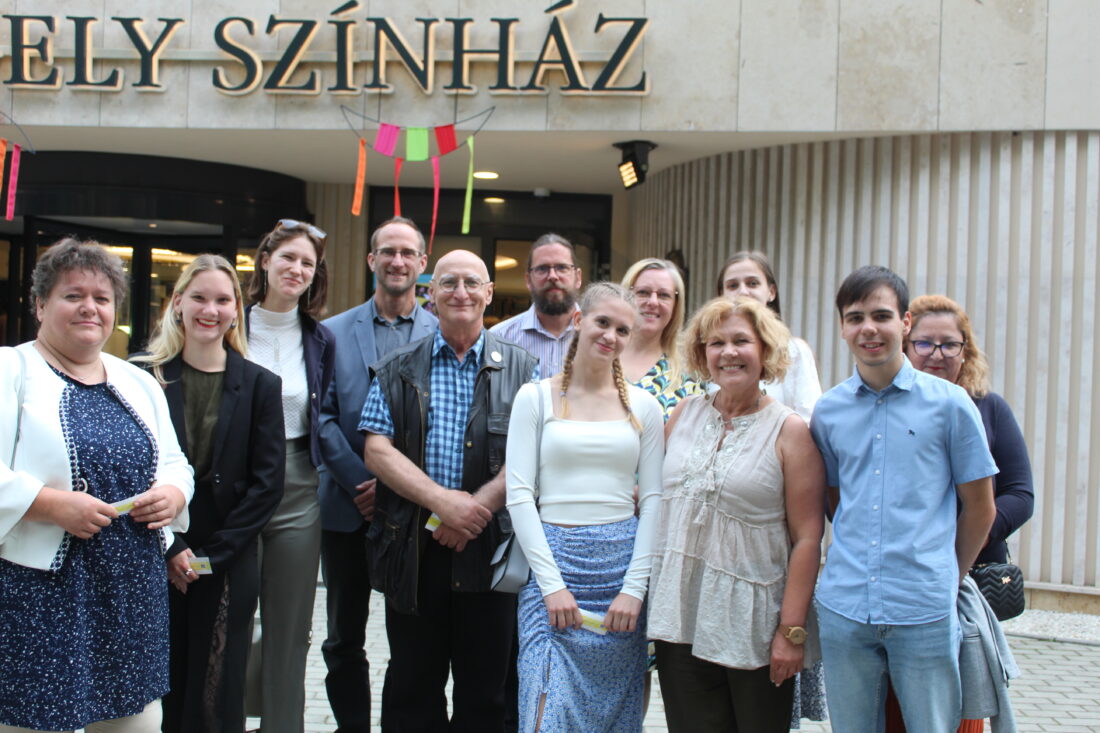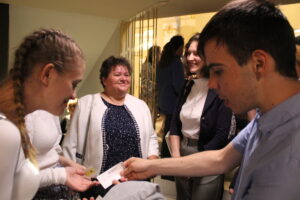
Meeting of theatres in Kaposvár
With our theater enthusiast members, we closed this year’s season with a theater visit over the weekend. This year, the National Theater Meeting (ReOSZT) took place in Kaposvár. The name refers to the old-new festival, as the famous POSZT actually moved from Kaposvár to the county seat of Baranya, but in the 1990s, theater meetings were held annually in our city. As a theater fan, I was eagerly awaiting to see what performances would be part of the program, and I managed to watch several of them. Naturally, our group attended one of the performances, namely “Csirkefej” by the Pécsi Harmadik Színház. Based on what our mentor Sasa had told us about the play beforehand, I was very excited to take my seat in the auditorium and was very curious about the form in which we would see this drama.
However, unfortunately, the production could not keep everyone’s attention throughout. I found the performance slower and more rhythm-less than necessary, and the relationships between the characters unfolded more slowly for the audience than justified. I would be lying if I said I hadn’t seen much better performances, and while this theatrical experience may not have made it to the podium for me, I still consider György Spiró’s drama to be truly excellent. I wouldn’t call what I saw boring at all; for me, it was thought-provoking and very instructive throughout. We had to organize our thoughts after the performance. This play shows so well how difficult circumstances and different life situations can affect people. I think the things presented in the play, unfortunately, happen around us in reality, happening with us. With this play, I had another theatrical experience, and I am glad that dr. Radoszáv Miklós joined us that evening at one of Kaposvár’s most iconic buildings, the Csiky Gergely Theater. After the performance, thanks to Professor Gombos, we could also listen to the professional discussion, which was also an interesting and exciting experience for me: to see how the judges of the profession think and form their opinions.
Levente Sipos
That night, I couldn’t really piece the story together in my mind. But the next day, as I was pondering the story and talking about it with others, I felt I understood its essence. I asked myself how many criminals might come from such a poor, poorly-treated background, through no fault of their own… I can’t even imagine what it must be like to grow up this way, going through institutions, then seeing the mother who left you earlier. It’s simply terrible to imagine and see how, if a person comes from a bad environment, where they might end up.
Eszter Kovács



